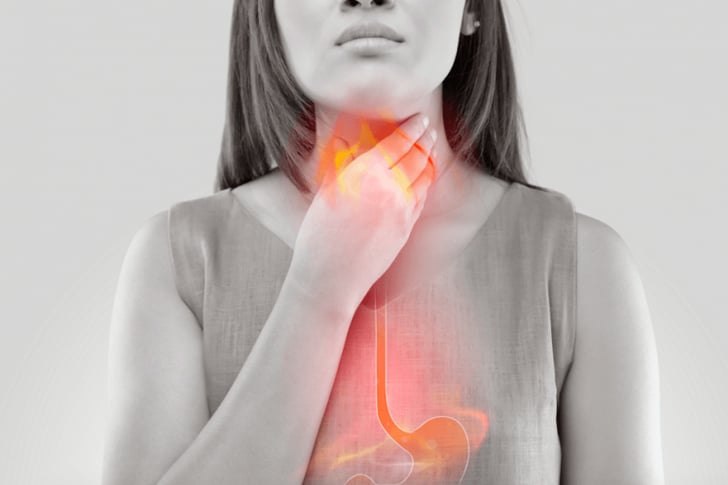Esophageal cancer is a serious disease. Recognizing early signs and knowing about diagnosis methods are crucial for effective treatment and improved outcomes.

What is Esophageal Cancer?
Esophageal cancer begins in the esophagus, the tube that carries food from the mouth to the stomach. This type of cancer can develop in any part of the esophagus and is mainly categorized into two types: squamous cell carcinoma and adenocarcinoma. Understanding the basics of esophageal cancer helps in identifying risk factors and seeking medical advice promptly.
Risk Factors for Esophageal Cancer
Several factors can increase the risk of developing esophageal cancer:
Age
: Very cases are diagnosed in individuals aged 55 and above.Gender
: Men are more likely to develop esophageal cancer than women.Smoking and Alcohol Consumption
: Both are major risk factors.Diet
: A diet low in fruits and vegetables may increase the risk.Obesity
: Being overweight contributes to a higher risk.Gastroesophageal Reflux Disease (GERD)
: Chronic acid reflux can damage the lining of the esophagus.Barrett’s Esophagus
: A condition where the esophageal lining changes, increasing cancer risk.Recognizing the Early Signs of Esophageal Cancer
Early detection significantly improves the chances of successful treatment. Here are some early signs to look out for:
Difficulty Swallowing (Dysphagia)
: This is often the earliest symptom. Patients may feel like food is stuck in the throat or chest.Unintended Weight Loss
: Noticeable and unexplained weight loss is a common early indicator.Chest Pain or Discomfort
: Experiencing pain or discomfort behind the breastbone is a warning sign.Persistent Coughing or Hoarseness
: These symptoms might suggest cancer, especially if they do not go away.Indigestion or Heartburn
: Chronic indigestion and heartburn may signal the presence of esophageal cancer.Vomiting
: Frequent vomiting can also be an early sign of cancer in the esophagus.Importance of Early Diagnosis
Early diagnosis of esophageal cancer can provide a better prognosis and more treatment options. If you experience any of the symptoms mentioned, it is imperative to consult a healthcare professional for further evaluation.
Diagnostic Methods for Esophageal Cancer
Several diagnostic tests and procedures can help detect esophageal cancer. These include:
Barium Swallow (Esophagram)
: In this X-ray test, the patient swallows a barium solution that outlines the esophagus on X-ray images. This helps in identifying abnormalities or narrowing in the esophagus.Endoscopy
: A thin, flexible tube with a camera (endoscope) is inserted through the mouth to view the esophagus. This allows the doctor to see any abnormal areas and take biopsies if needed.Biopsy
: During an endoscopy, tissue samples may be taken from suspicious areas to check for cancer cells under a microscope.Endoscopic Ultrasound (EUS)
: This combines endoscopy and ultrasound to provide detailed images of the esophagus and nearby lymph nodes and tissues.Computed Tomography (CT) Scan
: A CT scan helps to visualize the esophagus and other organs to determine if cancer has spread.Positron Emission Tomography (PET) Scan
: This imaging test helps in identifying cancer spread by using a small amount of radioactive sugar detected by a special camera.Steps to Take After Diagnosis
If diagnosed with esophageal cancer, there are several steps to follow:
Consult a Specialist
: Work with oncologists and gastroenterologists who specialize in esophageal cancer.Understand the Stage
: Knowing the stage of cancer helps determine the treatment plan. Stages range from I (early stage) to IV (advanced stage).Explore Treatment Options
: Common treatments include surgery, radiation therapy, chemotherapy, targeted therapy, or a combination. The choice of treatment depends on the stage and overall health.Seek Second Opinions
: Don't hesitate to gather more opinions to feel confident in the proposed treatment plan.Consider Clinical Trials
: Research studies testing new treatments may be an option, especially if standard treatments are not effective.Support System
: Build a support system with family, friends, and support groups for emotional and practical support.Conclusion
Esophageal cancer is a critical health issue, but early detection and accurate diagnosis can greatly improve outcomes. Awareness of early signs and pursuing timely medical care are essential. Always consult healthcare professionals to discuss any concerns and get appropriate screening and diagnostic procedures done for a healthier future.









